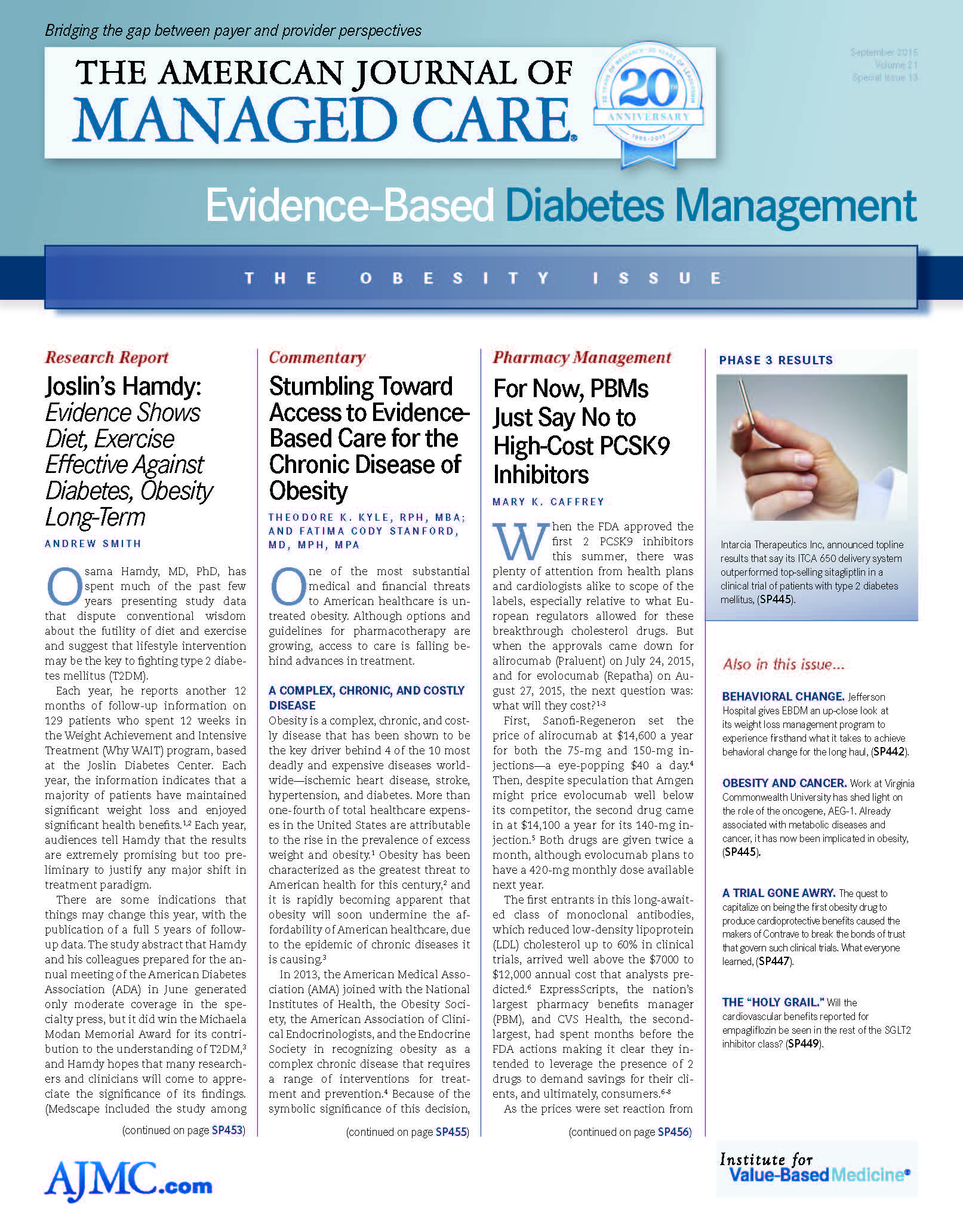- Center on Health Equity & Access
- Clinical
- Health Care Cost
- Health Care Delivery
- Insurance
- Policy
- Technology
- Value-Based Care
If Beef Is Not Sustainable, Is Growing It the Answer?
The Dietary Guidelines Advisory Committee said the way meat is raised is bad for the environment. A project from the Netherlands offers a high-tech, if expensive, solution.
The meat industry, and beef producers in particular, have been criticized for a lack of sustainability in a society increasingly concerned about the environment. In fact, the 2015 Dietary Guidelines Advisory Committee (DGAC) cited the need for sustainability in calling for limits on red and processed meat consumption in its February recommendations.1
But food scientists now have a possible solution: growing meat with stem cells.
Mark Post, MD, PhD, of Maastricht University, Netherlands, presented “Advanced Food Technology: Culturing Meat Outside of the Animal,” at the 2015 Institute of Food Technologists Annual Meeting and Expo in Chicago. In this process, stem cells are extracted from an animal’s skeletal muscle tissue and placed in an artificial growth environment. With proper care, these stem cells yield food-grade muscle tissue for human consumption.
While showing promise, this project remains a work in progress. Myoglobin production, for instance, has been a problem, and in past trials Post’s team has had to color the final product with beet juice and saffron to achieve the familiar red hue. Since then, the researchers have lowered the oxygen levels at which the cells are grown to achieve favorable results. The meat is also 100% lean, making the texture dry and the flavor subpar.
Post says his team is already exploring measures to introduce fat into the product. However, current methods of growing fat tissue that are used by the broader research community have not met their unique needs. “The process is not compatible with food production,” Post explained. “It requires a high level of steroids and cadmium, which is very toxic for people.”
They’ve had to redesign the process, and are looking into different stimulation methods for the stem cells. Post says they have had success using branched fatty acids as stimulators.
However, the most challenging portion of the project might not be the meat itself but the public’s perception of it. The public is wary of this “franken-meat,” as Post put it, which is in its own way quite logical. “We want to have at least some sense of control over how our food is being produced,” said Post. He went on to explain how this production method fell into the natural versus un-natural debate within the food industry. “In an animal there’s one and a half billion years of evolution; checks and balances are done by nature. If something goes wrong with it, it will cease to exist. Whereas now, it is being transferred to the hands of humans. They make mistakes; they are sometimes fraudulent.”
The team has taken steps to sensitize the public to the idea of lab-grown meat. At a televised event in 2013, Post’s team debuted the first in vitro hamburger, priced at $300,000, in London. Efforts to involve the community have been proposed once the meat can be produced on a larger scale. These include private growing units to be installed in consumer homes and community farms where the public would be able to meet the animals that supply the stem cells and see the food being produced. With more public acceptance and fine tuning of the project, consumers may see lab-grown meat available in a decade or so, Post said.
Maastricht University is even hosting the “First International Symposium on Cultured Meat,” to be held in the Netherlands, October 18—20, 2015.2 References
1. DGAC scientific report of the 2015 Dietary Guidelines Advisory Committee. US Office of Disease Prevention and Health Promotion website. http://www.health.gov/ dietaryguidelines/2015-scientific-report/. Published February 18, 2015. Accessed February 18, 2015.
2. Maastricht University. First International Symposium on Cultured Beef. http://culturedbeef.net/homepage/. Accessed August 8, 2015.

Quality of Life: The Pending Outcome in Idiopathic Pulmonary Fibrosis
February 6th 2026Because evidence gaps in idiopathic pulmonary fibrosis research hinder demonstration of antifibrotic therapies’ impact on patient quality of life (QOL), integrating validated health-related QOL measures into trials is urgently needed.
Read More
Building Trust: Public Priorities for Health Care AI Labeling
January 27th 2026A Michigan-based deliberative study found strong public support for patient-informed artificial intelligence (AI) labeling in health care, emphasizing transparency, privacy, equity, and safety to build trust.
Read More
Ambient AI Tool Adoption in US Hospitals and Associated Factors
January 27th 2026Nearly two-thirds of hospitals using Epic have adopted ambient artificial intelligence (AI), with higher uptake among larger, not-for-profit hospitals and those with higher workload and stronger financial performance.
Read More
Motivating and Enabling Factors Supporting Targeted Improvements to Hospital-SNF Transitions
January 26th 2026Skilled nursing facilities (SNFs) with a high volume of referred patients with Alzheimer disease and related dementias may work harder to manage care transitions with less availability of resources that enable high-quality handoffs.
Read More

